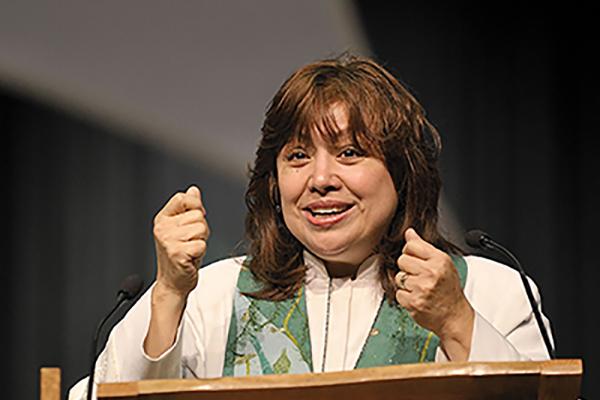ALTHOUGH FOURTH in his high school class, Juan Martínez was never encouraged to take an AP exam or think about college. Like many other Latinos in California during the 1970s, it was assumed he would become a farm worker.
But Martínez, now vice president for diversity and international ministries at Fuller Theological Seminary in Pasadena, Calif., had a different calling; he continued his education and became a Mennonite Brethren pastor. He’s now earned two master’s degrees and a Ph.D. in theology, but Martínez still credits his father, also a pastor, for teaching him how to minister in the Latino community.
As a child, Martínez watched his father help families broken by immigration raids, support manual laborers facing exploitation, and march with other leaders in Kettleman City, Calif., to protest an enormous toxic waste dump that was created without informing the migrant workers who lived nearby. Yet Martínez’s father never considered his work “social justice,” a term he associated with churches that downplayed morality and personal salvation. For his father, said Martínez, addressing injustice against his congregation was simply “part of the daily life of the church.”
Like his father, Martínez’s ministry as a Latino pastor has involved dealing with the realities of his congregation, including the plight of migrants. But unlike his father, Martínez does not mind the label “social justice” because he believes the church exists for both community transformation and personal conversion.
“You cannot be a Latino pastor and not address the undocumented, not address the school system, not address salaries in urban or rural environments,” said Martínez. “It hits you in the face every day and we have to address the consequences.” What’s starting to change, Martínez explained, is that a new generation of Latino and Latina leaders are using “social justice vocabulary” to call attention to the problems facing their communities.
Read the Full Article

